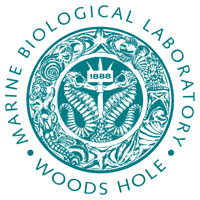
WOODS HOLE – Marine Biological Laboratory (MBL) scientist Jerry Melillo will be summarizing the changes and impacts of human activity on the environment next week.
Melillo will summarize the impacts already observed, those projected for the future, and discuss ways that society can respond to the ongoing climate change challenge.
Many lines of independent evidence demonstrate that the rapid warming and associated climate changes observed over recent decades are due primarily to human activities.
Jerry Melillo is a Distinguished Scientist and Director Emeritus of The Ecosystems Center at MBL. He is also a Professor of Biology at Brown University. Dr. Melillo has conducted extensive research on the impact human activities have on the biogeochemistry of terrestrial ecosystems on a local and global scale.
He also has done important work in providing a scientific foundation for environmental policy. Dr. Melillo worked as the lead author in some of the earliest climate assessments prepared by the Intergovernmental Panel on Climate Change (IPCC) in the 1990s, co-receiving the 2007 Nobel Peace Prize awarded to the IPCC and Al Gore Jr.
In 1996 and 1997, Dr. Melillo acted as the Associate Director for Environment in the U.S. President’s Office of Science and Technology Policy. He co-led the first two U.S. National Climate Assessments and chaired the third National Climate Assessment published in 2014.
He currently serves as chairman of the National Academy of Sciences, Engineering and Medicine’s Gulf Research Program Advisory Board. Dr. Melillo received his B.A. and M.A.T. at Wesleyan University and his M.F.S. and Ph.D. at Yale University.
The talk, titled “Which World? – Climate Change, Climate Choices,” will be held in the MBL’s Lillie Auditorium at 8:00 p.m. on June 21. The event is free and open to the public and will be live-streamed at videocenter.mbl.edu. Free parking is available in any MBL lot.
Friday Evening Lectures are offered at the MBL every Friday through August 9. The hour-long talks are geared for a diverse and engaged audience and appeal to scientists and non-scientists alike.
The remaining lectures in the 2019 schedule are below:
June 28 – Porter Lecture
“100 Years on from Spemann and Mangold” – Richard Harland, University of California, Berkeley
July 5 – Segal Lecture
“Insights from Emerging Model Organisms: From the Physics of Beauty to the Secret Lives of Lobsters” – Nipam Patel, Marine Biology Laboratory
July 12
“NIH Addresses the Science of Diversity: Looking Through a Genomic Lens” – Hannah Valantine, National Institutes of Health
July 19 – Forbes Lecture
“Cephalopods, Visual Perception, Motor Control and Brain Evolution” – Gilles Laurent, Max Planck Institute for Brain Research
July 26
“The Future of Ocean Conservation” – Ayana Elizabeth Johnson, New York University; Ocean Collectiv
August 2
“Biological Propulsion in (and of?) the Ocean” – John Dabiri, Stanford University
August 9
“The Past and Future of Bioluminescence Research, in Light of the Contributions of Osamu Shimomura” – Steven Haddock, Monterey Bay Aquarium Research Institute
By TIM DUNN, CapeCod.com News Center
























